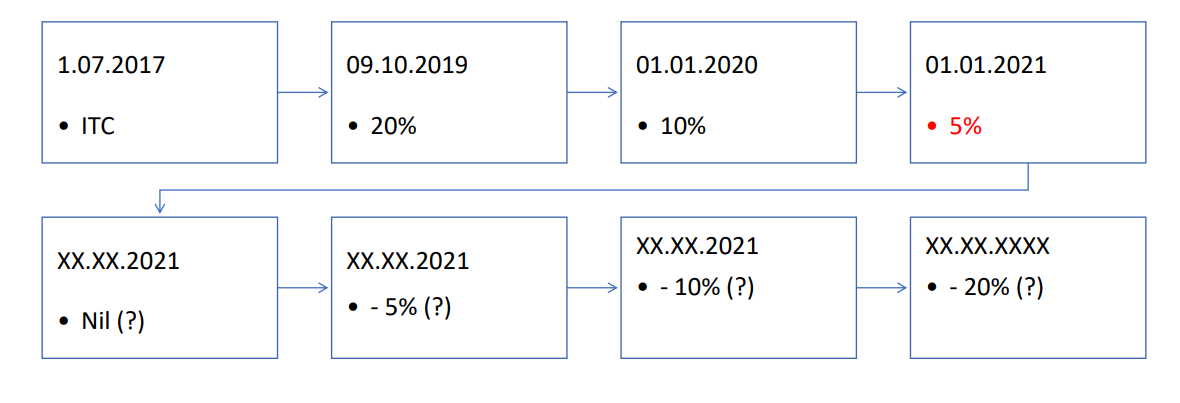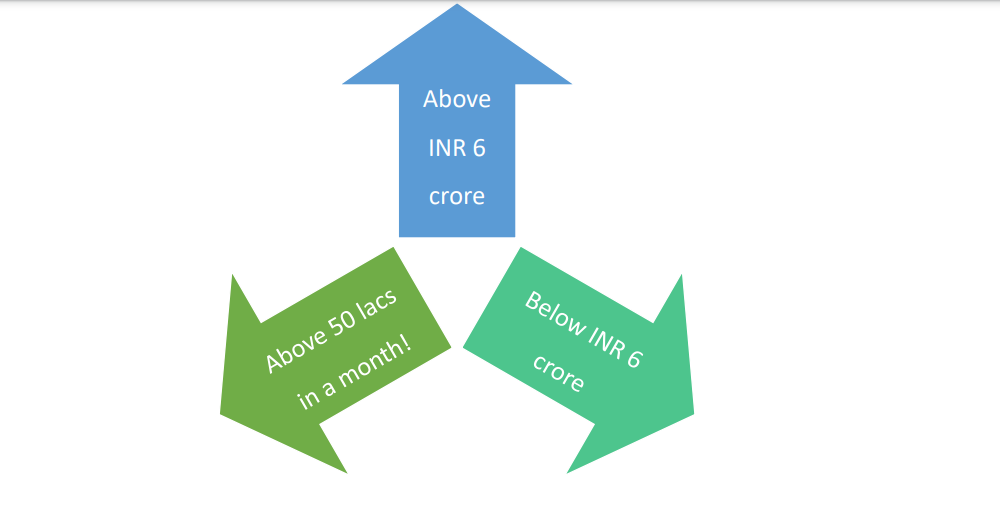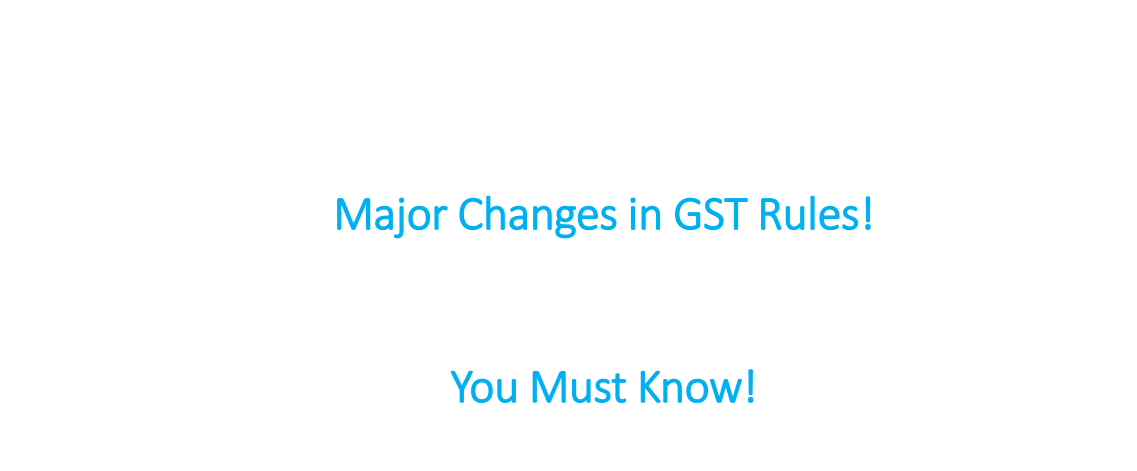Major Changes in GST Rules!
Table of Contents
Major Changes in GST Rules!
How many times the Rules amended?
2017 → 14 times
2018 → 14 times
2019 → 9 times
2020 → 14 times
Total → 51 times!
What’s new – Changes made through Not. No. 94/2020-CT!
- Input Tax Credit
- Returns
- Re-conciliation
- Registration
Legal provisions
Changes!
1. From 10% to 5% [Rule 36 (4)]
1.1 Changes in Rule 36 (4) [w.e.f. 1.01.2021]
5% → (c) for the figures and words “10 percent.”, the figure and words “5 percent.” shall be substituted
Uploaded (QRMP related) → (a) for the word “uploaded”, at both the places where it occurs, the word “furnished” shall be substituted
IFF added (QRMP related) → (b) after the words, brackets, and figures “by the suppliers under sub-section (1) of section 37”, at both the places where they occur, the words, letters, and figure “in FORM GSTR-1 or using the invoice furnishing facility” shall be inserted
1.2 Rule 36 (4) – Changes!

2. Pay 1% in cash! [Rule 86B]
2.1 New Year Surprise!
From 1.01.2021
2.2 Why!
Fake-invoicing!
2.3 Who should be aware?

2.4 Pay 1% in cash!
- Pay atleast 1% of tax liability through cash ledger
- If value of taxable supply other than exempt supply and zero-rated supply
- In a month
- Exceeds fifty lakh rupees
2.5 Why?
Why pay 1% in cash?
• In case of fake-invoicing, typically, entire GST liability is paid through credit so!
• Fake-traders may be charging 1% or more!
Why exempt supply and zerorated supply excluded?
• As GST is not applicable thereon (so no issue of fake credit)
Why monthly turnover than annual?
• Mostly fake-supplier vanish after few months (so they may not complete a year)
2.6 Not applicable if – Income Tax!
Who?
1. Registered person
2. Proprietor
3. Karta
4. Any of its two partners
5. Managing Director or Whole-time Directors
6. Members of Managing Committee of Associations
7. Board of Trustees
8. As the case may be
What
• Have paid more than one lakh rupees as Income-tax
• In each of the last two financial years for which the time limit to file return of income under subsection (1) of section 139 of the said Act has expired










